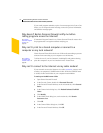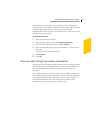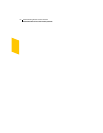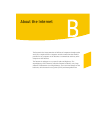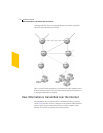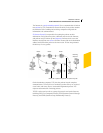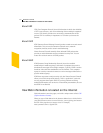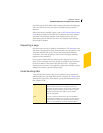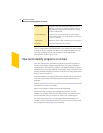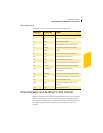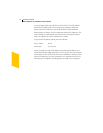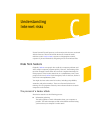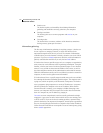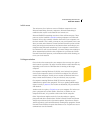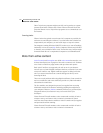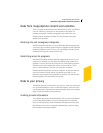
About the Internet
How ports identify programs on servers
122
There is one particular URL that identifies your computer to itself, and that
is localhost. If your computer has Web server software installed, you can
type http://localhost and see your Web page. The IP address that
corresponds to localhost is 127.0.0.1.
How ports identify programs on servers
Ports, also called sockets, provide the locations of particular programs or
servers on the remote computer with which you are trying to establish
communication. This makes it possible to run multiple Internet programs
simultaneously on a single computer. For example, many computers on the
Internet run both Web and FTP servers. The Web server uses port 80, while
the FTP server uses port 21.
Ports are numbered 1 through 65535. Ports 1 through 1023 are known as
well-known ports and are the default ports for many common Internet
programs.
Ports are part of URLs, but they are rarely seen. The port number follows the
host name and a colon. For example:
http://www.symantec.com:80/securitycheck/index.html
Because the most-used ports are standardized, you rarely see port
numbers. For example, Web browsers almost always use port 80, so they
don’t require that you type it unless you need to use a different port.
The terms server and service are used somewhat interchangeably. For
example, a Web server provides the HTTP service, while it is usually said
that a computer has the finger service running.
symantec.com The domain. This is the domain with which the browser
establishes a connection. A domain frequently refers to a
single company or organization that might have multiple
Web sites on the Internet.
www.symantec.com The host. This is the particular Web site with which the
browser communicates. It is also the name for which DNS
provides an IP address.
securitycheck The folder or directory that contains the file to be accessed.
index.html The file name of the file to be accessed.



